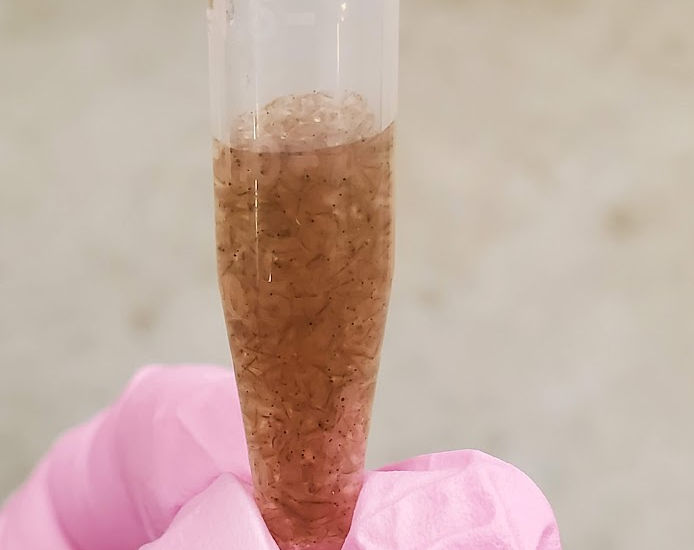top of page

Marie-Pier Hébert
Postdoc
As a limnologist, my research aims to better understand how freshwater ecosystems and food webs work, vary across seasons (including winter!), and respond to global environmental changes. I completed masters and doctoral degrees in aquatic ecology, and worked as a freshwater consultant, research associate or technical assistant for a few entities in Québec and abroad (e.g. Ministry, Research Institute). My 15 years of experience in fundamental or more applied dimensions of aquatic sciences have led me to explore questions in regard to climate change (e.g. winter ice loss, warming surface waters), increased terrestrial inputs of organic matter in water, environmental pollution (e.g. salt, fertilisers, pesticides), nutrient loading, and more general areas of research including functional ecology and ecological stoichiometry.

Most of my recent work has focused on lake ecology in the frozen winter, to contribute to advancing our knowledge of how ecosystems and biota fare under ice and respond to warming winters and changing ice conditions. Increasingly intermittent, reduced duration, and poor quality of winter ice have critical implications for lakes and people relying on frozen ecosystems for livelihoods and tradition. Winter, however, has long been neglected in freshwater science due to logistical challenges and historical misconceptions of the so-called "dormant" ice-covered period, resulting in a paucity of winter data. As a result, while advances in remote sensing have enabled robust forecasts of lake ice declines worldwide, our ability to anticipate the resulting ecological and societal impacts remains limited, leaving northern countries like Canada ill-prepared to build the adaptive capacity required in response to warming winters.
Combining lake surveys and data syntheses, my research exploits natural gradients of winter conditions to infer ecological changes that are to come with warming winters from variation occurring over space. A project in large part leveraged by the Rautio AquaLab activities includes a standardised survey of ice-covered lakes along a latitudinal gradient of winter severity, from colder/longer winters in Nunavut to warmer/shorter winters in southern Québec (45-69N). I examine how ice and snow conditions constrain lake physical and food web structure, from the base of the food chain to intermediate and sometimes higher trophic levels like fish targeted by local ice fishing. A key question I seek to answer is whether warmer winter conditions lead to reduced winter fat accumulation in consumers, especially in terms of health-determining omega-3 and omega-6 fatty acids, implying that food webs may be supported by energy of lower nutritional quality under warming winters.
More generally, I have been either collaborating from far or working more closely with the AquaLab since 2016. A mysterious phenomenon for which I have yet to identify the exact causal mechanism is the continued awesomeness of the group members over time, despite compositional change. Further investigation may be warranted to gain a deeper understanding.
bottom of page

















